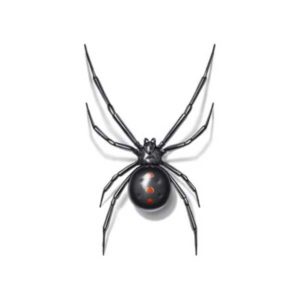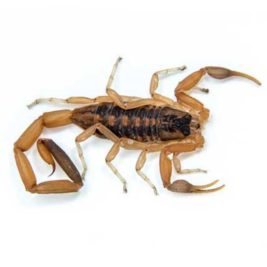 The black widow spider is perhaps the most feared spider in southern Nevada due to the potency of its venom, which is reported to be 15 times stronger than that of a rattlesnake. If its aggressiveness matched the potency of its venom, humans would be at far greater risk living in the Las Vegas and Henderson area. Fortunately, black widows are shy and will usually only bite humans when their web is disturbed. The black widow loves warmer climates and she’s right at home in our desert, but where does she go in winter?
The black widow spider is perhaps the most feared spider in southern Nevada due to the potency of its venom, which is reported to be 15 times stronger than that of a rattlesnake. If its aggressiveness matched the potency of its venom, humans would be at far greater risk living in the Las Vegas and Henderson area. Fortunately, black widows are shy and will usually only bite humans when their web is disturbed. The black widow loves warmer climates and she’s right at home in our desert, but where does she go in winter?
Habitat
Black widow spiders stay outdoors, for the most part. Widows build irregular erratic looking webs and live in crevices or recesses within rock piles, block walls, sprinkler valve boxes, and undersides of patio furniture. Garages, outdoor sheds and playground equipment are also popular spots to find black widows.
Winter Survival
Black widow spiders go into a state known as overwintering in cold locations. As the weather gets cooler, widow spiders look for warmer locations to hunker down for the season. Once the black widow spider enters a storage shed, garage or home, she may find a suitable place where she can overwinter just like a hibernating bear. The spider’s metabolic rate slows to conserve energy. Winters don’t harm black widows because they are adapted to live through cold months in a low-energy state. They tuck in their legs and become dormant.
Prevention Tips
Black widow spiders emerge in spring when mating occurs through early summer. Young spiderlings continue to grow into adults during the spring and summer and mature by mid to late summer. Adult widows are most prevalent during late summer and fall. Here are a few tips to prevent an infestation:
- Keep your home free of clutter and seal possible entry points.
- Install screens and weather stripping to keep spiders and other pests from entering your home.
- Always using gloves, remove old boxes and other unwanted items from dark corners of outdoor sheds and garages, reducing the number of places for the spiders to hide.
If you suspect a spider infestation, contact a black widow control specialist immediately. This is the safest way to get rid of black widow spiders in the home.

 Baby, it’s cold outside! As the temperatures drop below freezing in the
Baby, it’s cold outside! As the temperatures drop below freezing in the